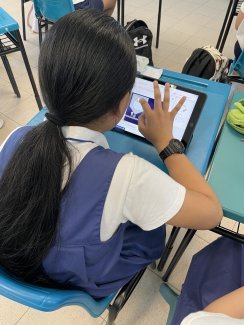Artikkelit

18.09.2024
Singapore places a high priority on developing, integrating, and responsibly managing AI in its policies
Singapore attracts investments by offering an innovative business environment, strong digital infrastructure, and skilled talent. Government efforts have boosted AI, placing Singapore third in the Global AI Index, which benchmarks nations on their level of investment, innovation and implementation of AI. Singapore leverages AI and machine learning to drive innovation and growth across industries.
The Singapore government has been proactive and ambitious in setting goals and priorities for its AI policies, which cover all key areas of public administration. The National AI Strategy (NAIS 2.0) aims to advance AI and maximize value creation, and to empower individuals, businesses, and communities to use AI confidently and responsibly. The government supports innovation while ensuring that AI aligns with laws and safeguards. Singapore has recognized three key AI development areas: 1) From Opportunity to Necessity: AI is essential for national prosperity and relevance; 2) From Local to Global: Connect to global networks and pool resources to tackle AI challenges, and 3) From Projects to Systems: Enhance capabilities, infrastructure, and resource foundations to amplify AI’s impact across sectors.
To achieve AI goals, the Singapore government has committed to fifteen actions. These actions consider efforts such as high-performance computing, capabilities in data services and privacy enhancing technologies, creating new AI centers of excellence, supporting AI-focused accelerator programs, attracting world’s top AI creators, increasing AI practitioner pool to 15 000, and creating security and resilience baseline for AI. Currently, Singapore’s AI regulation covers financial services, info-communications, media, and health sectors. Guidelines focus on fairness, ethics, accountability, and transparency to ensure responsible AI use.
AI governance ecosystem supports SMEs’ software development
Much have happened in Singapore regarding AI, and the latest applications of AI highlight how Singapore has applied AI for the well-being of the citizens and businesses. Listed next are few examples of the many topical developments. AI Verify software toolkit tests AI systems against a set of internationally recognized principles through standardized tests. In 2023, AI Verify Foundation was developed to support the software’s development and use. Generative AI Evaluation Sandbox was launched and developed with the AI Verify Foundation in 2024. It aims to develop broader AI governance ecosystem in Singapore. The Sandbox supports companies in gaining hands-on experience with generative AI solutions. Ultimately, 13 generative AI solutions will be added to the sandbox. Local small- and medium-sized enterprises (SMEs) selected to participate will receive grant support to trial a solution of their choice for three months. SMEs’ feedback will be evaluated and considered to scaling the adoption of generative AI applications across local SMEs.
AI is to serve health care and education
The emerging power of AI in diagnosing diseases has raised promises among health care management professionals. Government Technology Agency of Singapore (GovTech) is piloting a screening tool called Project Pensieve, which can detect signs of dementia by analyzing a user’s drawings. SELENA+ is a deep-learning AI software system that can accurately and efficiently detect potentially threatening eye conditions.
Municipal management and education sector have also benefitted from the application of AI. OneService Chatbot guides residents in providing relevant information in a real-time conversational manner, ensuring comprehensive logging of feedback. Chatbot provides guidelines and allows residents to report topical municipal issues to the administration. Student Learning Space (SLS) enables customization of learning in primary and secondary schools. SLS offers AI enabled features such as personalized learning pathway customizing recommendations and feedback for each student, learning companion supporting teachers in various instructional tasks, as well as learning feedback assistant for mathematics, and language feedback assistant for English.
Ethical expertise is actively involved
The topic of AI raises several concerns, particularly around ethical aspects such as information security, privacy, responsible online behavior, and misinformation. To address these issues, Singapore organized a conference in December 2023 (SCAI), where 42 international AI experts identified 12 critical questions to guide citizens, researchers, and developers in articulating foundational yet tractable areas of AI development and deployment.
In May 2024, during a panel discussion on “AI Governance: Policies and Collaboration from a Global Perspective,” Jaslyn Seah from the Media Development Authority of Singapore emphasized the need for evolving AI governance policies and continuous learning and adaptation by the government. This approach is evident in Singapore’s AI strategy, which prioritizes not only ethical frameworks but also investments in education, workforce development, global collaborations, capacity building, fostering local talent, and seeking international partnerships. Singapore’s newest AI strategy displays what effective AI governance looks like on an international level.
Text and photo: Ella Suortti and Mika Tirronen
Photo: Student Learning Space (SLS) provides personalized learning pathways in mathematics for primary school students in Singapore.
